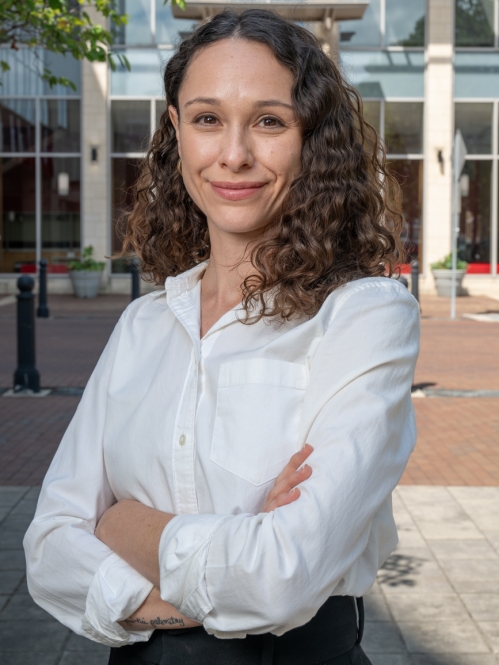Sara Lynch
Assistant Clinical Professor, and Director of the Housing Advocacy Clinic

Biography
Sara Lynch, assistant clinical professor, directs the Housing Advocacy Clinic, whose mission is to provide legal services to keep tenants in their homes, increase South Jersey’s safe and sustainable housing supply, and build tenant power. Students advocate on a range of issues to defend renters’ rights, including defending tenants against eviction, protecting residents’ right to safe, sanitary, and decent housing, and providing community outreach and education.
Prior to joining the Rutgers clinical faculty, Professor Lynch was the Community Disability Advocacy Project Staff Attorney at Community Legal Services, where she represented people with disabilities in Social Security disability applications and appeals and advocated to advance disability justice. Professor Lynch served as a judicial law clerk in the Eastern District of Pennsylvania for the Honorable Timothy J. Savage. She began her legal career as a Penn Fellow at the Defender Association of Philadelphia, advocating for youth education rights in the juvenile justice system and challenging conditions of confinement in juvenile placement. Professor Lynch is a graduate of the University of Pennsylvania Carey Law School, where she was a Toll Public Interest Scholar, Articles Editor of the Journal of Law and Social Change, and director of two pro bono projects: one to provide comprehensive mitigation and reentry support for youth prosecuted in the adult criminal justice system, and another to represent students in school disciplinary informal hearings. Professor Lynch is a graduate of Fordham University, a former Teach For America teacher (Nashville, Tennessee), and a former Fulbright English Teaching fellow (Medellín, Colombia).